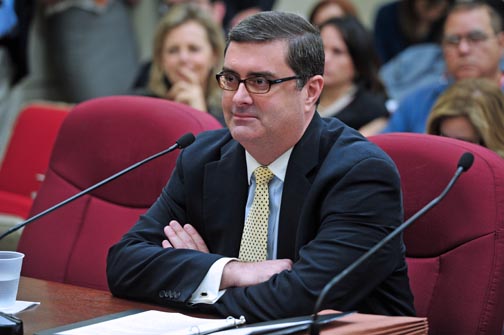Op-Ed: Put Puerto Rico first

During the past few months a narrative has taken hold, on both sides of the political spectrum, that Puerto Rico is “using federal disaster relief funds to pay bondholders.” This narrative is wrong and dangerously simplistic.
The use of federal funds, appropriated by Congress and allocated by federal agencies, is subject to numerous laws, rules, and regulations. Specifically, in the case of the Federal Emergency Management Agency and Housing and Urban Development, which administer the two largest sources of federal disaster relief funds, each has issued regulations governing the obligation and expenditure of those moneys.
In addition, these agencies have internal audit and control procedures and eventually could be subject to ex-post audits by their respective Inspector Generals and the Government Accountability Office, and to Congressional oversight hearings as well.
Therefore, those crafting this narrative either lack an understanding of the disaster recovery process or are simply misrepresenting the truth to score cheap political points. Unfortunately, cheap politics usually transform into expensive policy blunders.
That being said, and given that money is fungible, it is true that:
- Recovery funds will free up other Puerto Rican government funds that could be reprogrammed for other purposes (let’s call this the endowment effect)
- The economic activity generated by recovery spending in Puerto Rico will increase tax revenues which could be used for any other purpose, including to increase bondholder payouts (let’s call this the income effect)
In our view, too much effort has been devoted to finding a way to put a firewall between federal funds and debt service. This is a fool’s errand: although Congress can legislate that “no federal disaster relief funds can be used to pay bondholders,” there is no absolutely fail-safe way to prevent this given the fungibility of money.
What is required, instead, is the political will to tell bondholders that they will have to accept a large haircut even though the fiscal numbers look fine. And reason the numbers look good is because of the endowment and income effects described above, not because the Puerto Rican economy is growing at a sustainable rate.
Furthermore, the restructuring process designed under the Puerto Rico Oversight, Management and Economic Stability Act didn’t anticipate these funds would ever be available to substitute for other Puerto Rico government funds. If a large surplus had been foreseen back in 2016, then Congress wouldn’t have legislated to allow for the restructuring of Puerto Rico’s debt. Revising the fiscal plan to include the effect of disaster recovery spending was a serious policy mistake.
Puerto Rico is in a unique bankruptcy situation in the midst of a massive recovery effort after a natural disaster. In this context, the correct strategy should be to “Put Puerto Rico First” by planning and requiring that funds from both the endowment and income effects be plowed back into the Puerto Rico economy before paying off bondholders.
Elements of a Puerto Rico First strategy would include the following:
- Recalculating the available surplus in the fiscal plan, net of disaster recovery funds;
- Drafting a plan for investing the funds generated by the endowment and income effects on public good;
- Calculating bondholder haircuts based on the “available surplus” net of federal funds; and,
- Developing and offering to bondholders a bond whose repayment is contingent on Puerto Rico’s economic growth or on achieving certain tax revenue targets.
In conclusion, at a time when the bad happens and the worse threatens, all of us who care about Puerto Rico have to be cautious about the language we use to further Puerto Rico’s cause. The island has few champions in Washington and certainly no shortage of detractors. It is imperative that all of us who care about the island do not undermine our cause by using ill-defined concepts and ideas and careless language.














